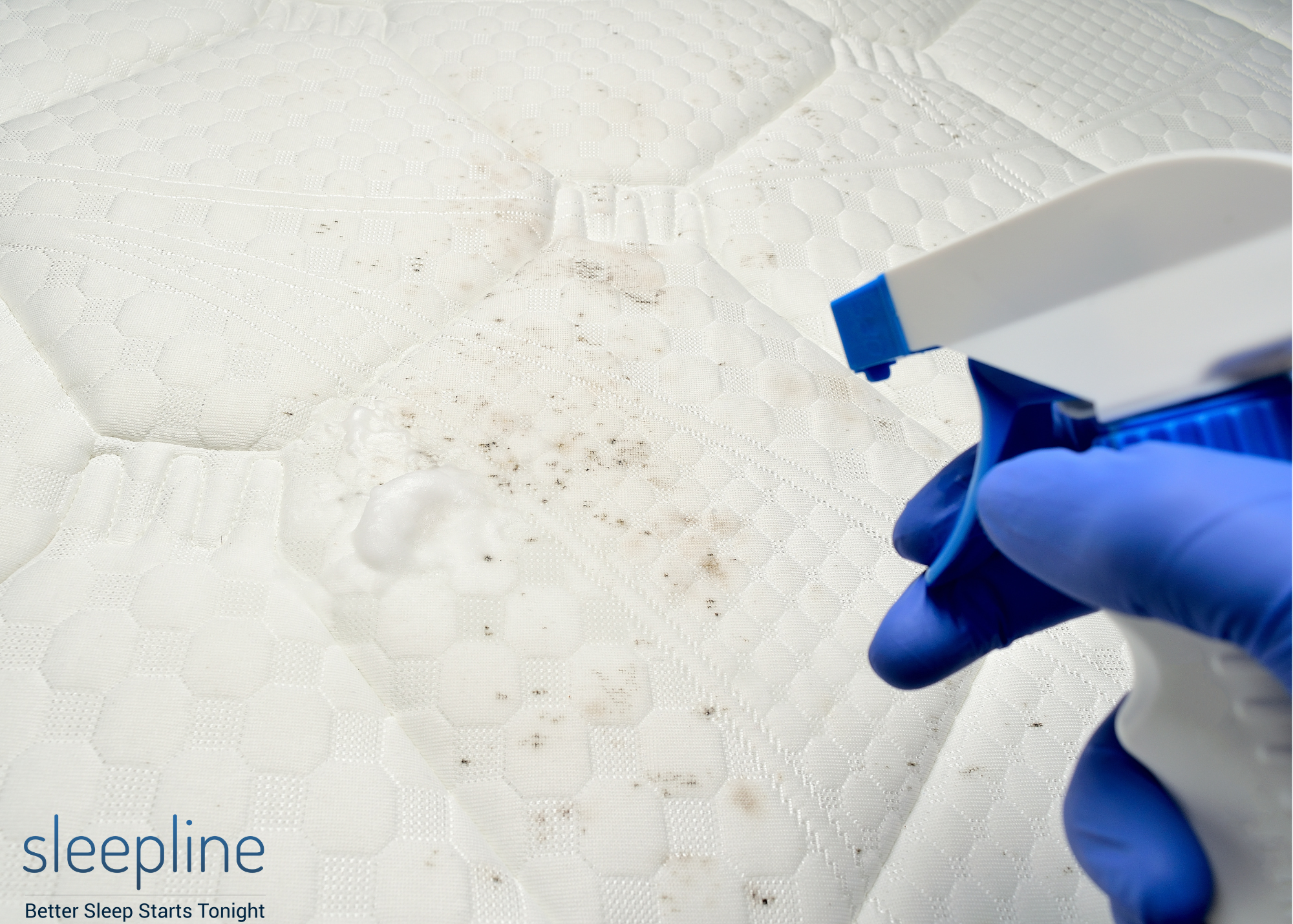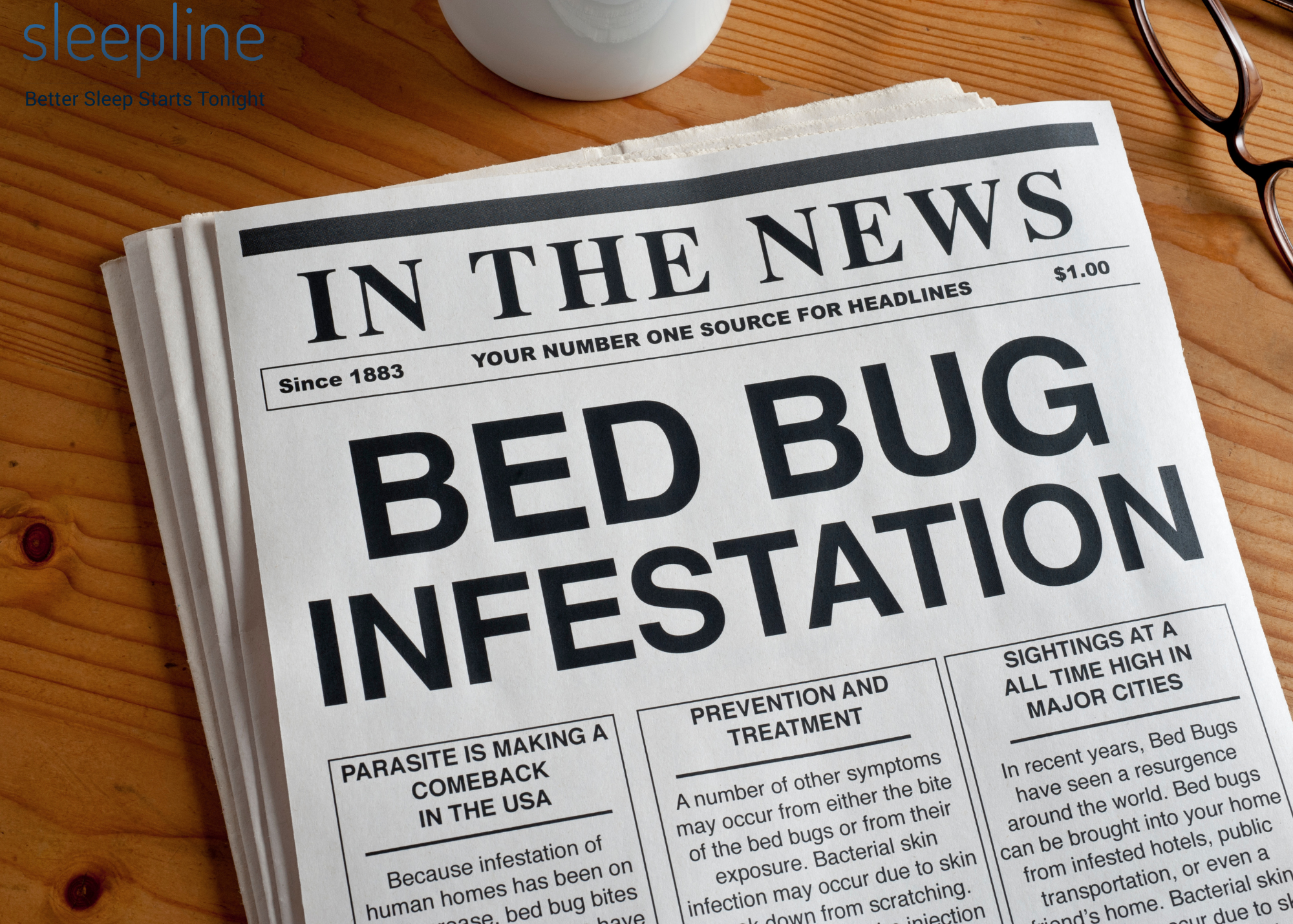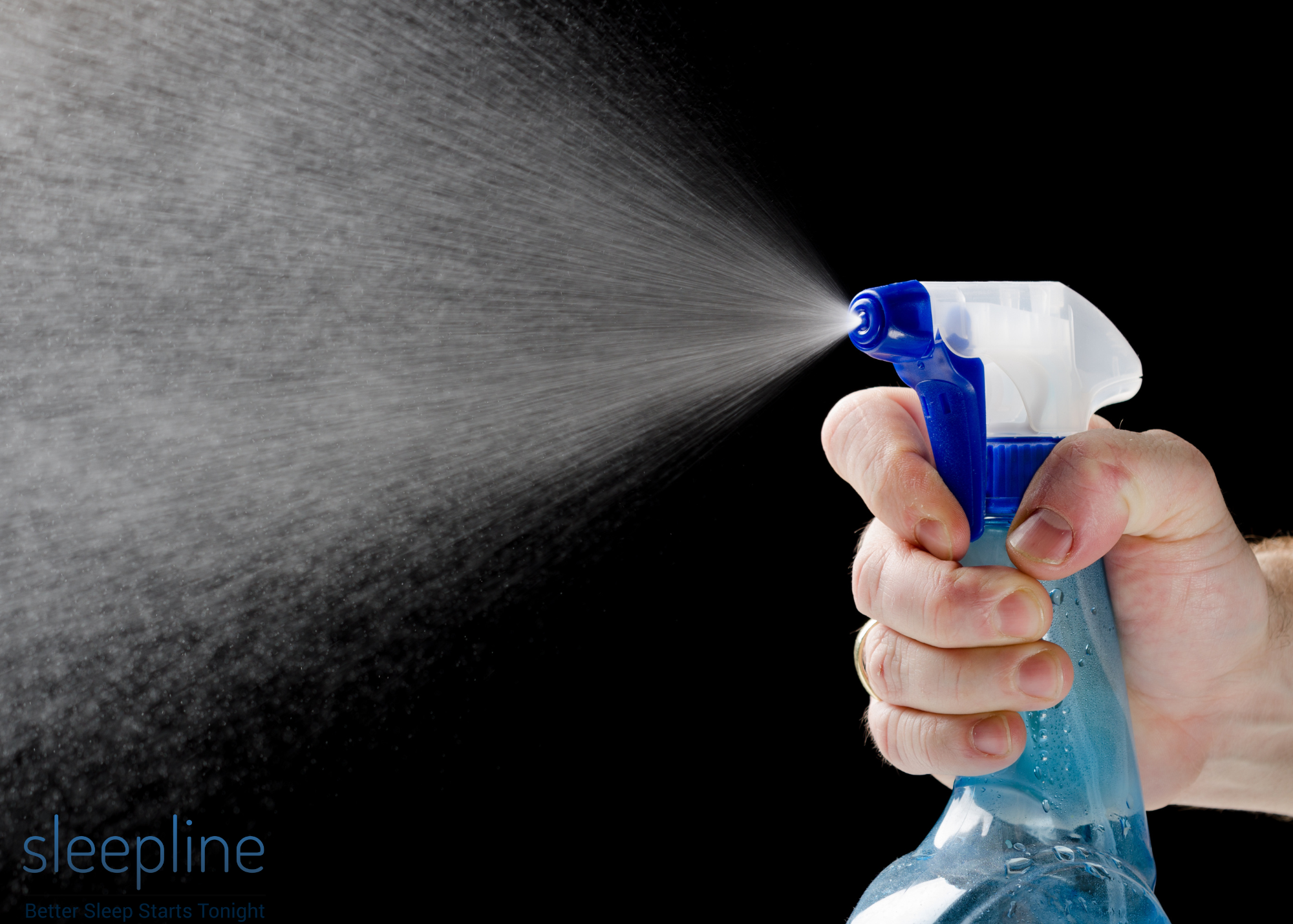
At times we are compensated for the links you click at no cost to you. Learn more about why you should trust our reviews and view our disclosure page.
The information on this website is not intended to replace a one-on-one relationship with a qualified health care professional and is not intended as medical advice. Read our full medical disclaimer.
Can you spray alcohol on a mattress to disinfect it and fight bed bugs? After thorough research, we drew conclusions that may surprise you, especially regarding its power (or lack thereof) in dealing with bed bugs. Also, we’ve made a step-by-step guide for mattress disinfecting and pest control with DIY alcohol spray.
Reasons for Spraying Alcohol on a Mattress
People spray alcohol on their mattresses for two main reasons. To disinfect their mattresses or to try to get their mattress free of bed bugs and other pests such as bed worms.
As for the bed bugs, we reviewed some university studies, and it seems that alcohol should be among your last choices because even 91% alcohol isn’t going to kill more than half of bed bugs and their eggs. We know, we know. It’s disappointing.

But then again, you can effectively use alcohol for mattress disinfection. Even surgeons use alcohol to disinfect their instruments, so why wouldn’t you try to kill some microorganisms using the same thing, especially if you had an accident that involved food, vomit, or something even worse?
Killing bed bugs
Spraying with alcohol will only repel bed bugs for a night or two, so if you only need a quick fix before finding a permanent solution, follow these guidelines:
- Make a DIY spray – take 91% rubbing alcohol and mix it with an equal part of water.
- Spray it – put the solution into a spray bottle and spray until you soak the entire surface of the infested mattress.
- Dry the mattress – use white cotton cloths to blot out the alcohol and wait for 15 minutes for it to evaporate. Depending on the level of infestation, repeat steps 1 and 2 several times.
- Make your bed clean and fresh – put clean bedding back on the mattress. The bedding should be washed and dried on a high-temperature setting.

Rubbing alcohol works only in direct contact with bed bugs and their eggs, but even then it’s not effective. Since it evaporates quickly, all the eggs that it didn’t reach will just stay there. Also, all of the bugs that weren’t directly exposed to liquid alcohol before it evaporated will not be harmed. It might only deter them for a while and they’ll come back soon. It is also ineffective if you want to get rid of ants in your bed.
If you’re planning a trip or move and you’re worried about the possibility of encountering bed bugs, take a look at our guide to bed bug statistics by state.
Disinfecting the mattress
Rubbing alcohol is a great disinfectant that can clean a mattress of microorganisms – germs, bacteria, and dust mites. In addition, rubbing alcohol removes unpleasant odors. To successfully clean and freshen your mattress with alcohol spray, follow these few steps:
- Strip your bed completely – remove the cover, sheets, and pillows from your mattress.
- Vacuum it – use a vacuum cleaner to remove any visible dirt, dead skin, and dust mites.
- DIY alcohol spray – use 91% concentration alcohol. Put it in a spray bottle and spray it on the mattress. Optionally, you might add some essential oils. A few drops of lavender, eucalyptus, wintergreen, or peppermint oils will freshen up your mattress and help you get rid of dust mites.
- Sprinkle baking soda – to remove moisture, sprinkle a thin layer of baking soda on the mattress and let it rest for 20 minutes. This helps with odors as well.
- Dry it – use a clean cotton cloth if necessary to dry the sleeping surface and vacuum once again to remove any moisture and the remaining baking soda. Let the mattress air out for a while before placing the sheets back.
Reasons to Avoid Using Alcohol on Your Mattress
Alcohol is capable of killing bed bugs and their eggs only on direct contact, so its effectiveness is questionable. And since it is extremely flammable, treating a mattress with alcohol for no good reason might even be dangerous.

It’s not completely effective
The most common type of rubbing alcohol contains about 70% or 91% isopropyl alcohol. A Rutgers University publication showed that 91% alcohol could only kill about 50 percent of bed bugs when sprayed directly on them, and an Ohio University thesis reported that 70% alcohol could kill as little as 15% of bugs.
As for other organisms, alcohol can only kill whatever’s on the surface of a mattress. Anything that’s inside stays alive. Also, any spot that you failed to spray well enough is not going to be disinfected.
Fire risk
Alcohol is highly flammable, so don’t spray it in closed rooms while you’re smoking or if there’s an open flame.
There are numerous newspaper reports of incidents and official appeals to people to not use alcohol to fight bed bugs. Don’t believe it? Just google alcohol and bed bugs.
In Detroit, a man sprayed alcohol on his sofa, and shortly after he lighted a cigarette which caused a fire. He did escape the blaze although he suffered severe burns. This fire burned his apartment and four other units in the building.
It only works on bed bugs with direct contact
Two separate pieces of research that we mentioned earlier concluded that alcohol works only when it’s directly applied to bed bugs and bed bug eggs.
Alcohol delivers two successive blows, it first dissolves the bed bug shells, and then it dries out their insides.
Alcohol doesn’t have the power to exterminate bed bugs and their eggs if they are hiding in bed cracks, seams in upholstered furniture, the box spring, or inside the mattress.
Given that even a hammer kills bugs in direct contact, we have reason to doubt the effectiveness of alcohol in the long-term fight against these bloodsuckers.
What the EPA Recommends
The Environmental Protection Agency (EPA) recommends a combination of chemical and non-chemical methods.
Using a quality mattress cover or a bed bug interceptor counts as a non-chemical remedy, along with improving bed hygiene. Finally, for infestations, you can hire a professional service to apply extremely high temperatures to the entire room.
Non-chemical methods
- Wash and dry – ensure that your clothes, bedding, and fabrics are washed and dried on a high-heat setting.
- Heat – each room in your house should be heated to 120°F (49°C) for 90 minutes or longer. Bed bug removal specialists use this method.
- Freeze – shoes, belts, leather bags, and even books, all items which you cannot wash, dry, or heat, should be frozen below 0°F (-18°C).
- Cover – use zippered, bug-proof covers on your pillows, mattresses, and box springs.
- Bed bug interceptors – keep bed bugs from climbing up your bed legs by placing bed bug interceptors. You can place interceptors under bed posts, or additionally, on other places under the bed.
Chemical methods
If you want a more aggressive approach to the bed bug problem, the EPA recommends using these chemical methods:
- Use the EPA’s interactive list to find the bed bug pesticide that best fits your needs. A common pesticide won’t work, so choose a pesticide that is labeled for bed bugs.
- Follow the directions on the product label regarding dosage and timing. Bed bugs could become resistant to pesticides if you don’t use enough.
- Contact a pest control expert if you can’t control the infestation on your own. Many people overapply pesticides when dealing with bed bug infestations. It results in dangerously high levels of pesticide residue in places where adults, children, and pets may spend time and sleep.
FAQs
The most used concentration contains 70% and 91% isopropyl alcohol. Entomologists recommend using rubbing alcohol in higher concentrations to get rid of bed bugs, so 91% alcohol should be the most effective.
Rubbing alcohol evaporates quickly, and after vaporizing, alcohol will not harm bed bugs. In the best case, alcohol treatment will kill half of the bed bugs on direct impact and repel them for a couple of nights.
It barely does, and only on direct contact. According to the research conducted by Ohio University on how different concentrations of alcohol can be more effective in killing bed bugs, 70% of alcohol managed to kill only 15% of treated bed bugs.
Yes, but only if it’s directly applied to bed bugs. Alcohol acts in two ways. First, it dissolves the shell and then dries out the inner parts of the bug. Still, it is not the most efficient way to handle the infestation. However, if you want to reduce the bed bug population and ensure a couple of peaceful nights before you get professional help, it may offer a temporary solution.
Conclusion
Although alcohol can purify your mattress, it’s highly flammable, so you should be extra careful not to turn mattress disinfection or bed bug infestation into a fire hazard. When it comes to the usefulness of alcohol against bed bugs, if you’re not able to find an effective chemical agent intended only for this purpose or to call professional exterminators, you may rely on alcohol spray, but only in the short term.
Next step: Read our list of copper-infused mattresses. Copper is a naturally antimicrobial material that’s great at helping your mattress stay clean and infestation-free. If you’ve tried everything and nothing’s working, it’s worth spending the money on a new mattress.
- Why is it illegal to remove a mattress tag? (what the penalty is) - July 7, 2025
- Best mattresses for kids (top 5 picks) - January 14, 2025
- Best 12-inch mattress – data-backed performance tests on 11+ brands - January 24, 2024
Psst… the sleep review industry is full of liars, sharks, and thieves. It’s a modern-day version of getting ripped off at your local mattress store. So, why should you trust us?

